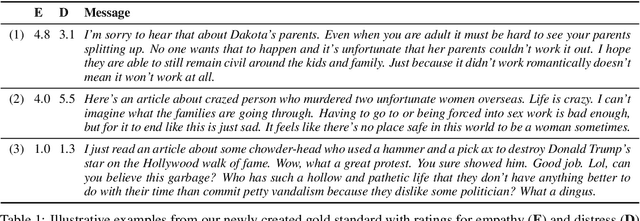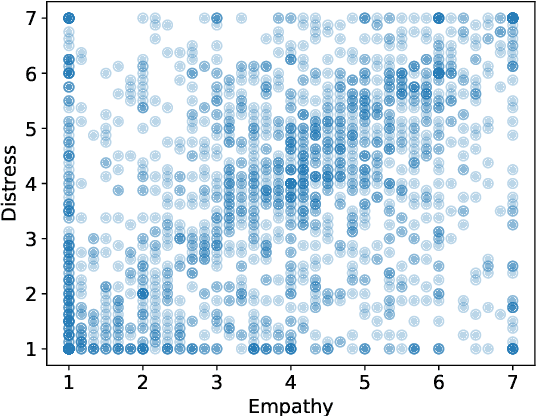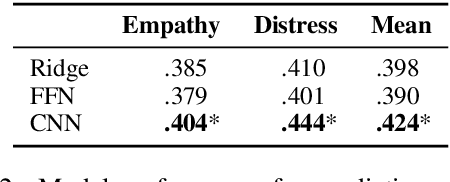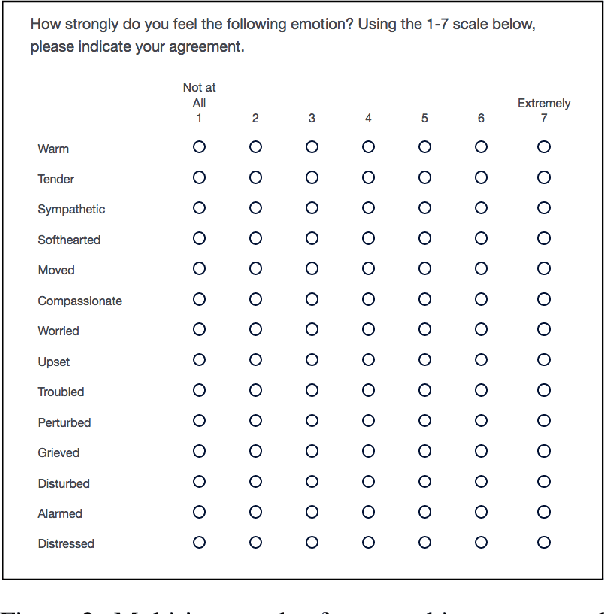Barry Slaff
Modeling Empathy and Distress in Reaction to News Stories
Aug 30, 2018



Abstract:Computational detection and understanding of empathy is an important factor in advancing human-computer interaction. Yet to date, text-based empathy prediction has the following major limitations: It underestimates the psychological complexity of the phenomenon, adheres to a weak notion of ground truth where empathic states are ascribed by third parties, and lacks a shared corpus. In contrast, this contribution presents the first publicly available gold standard for empathy prediction. It is constructed using a novel annotation methodology which reliably captures empathy assessments by the writer of a statement using multi-item scales. This is also the first computational work distinguishing between multiple forms of empathy, empathic concern, and personal distress, as recognized throughout psychology. Finally, we present experimental results for three different predictive models, of which a CNN performs the best.
 Add to Chrome
Add to Chrome Add to Firefox
Add to Firefox Add to Edge
Add to Edge